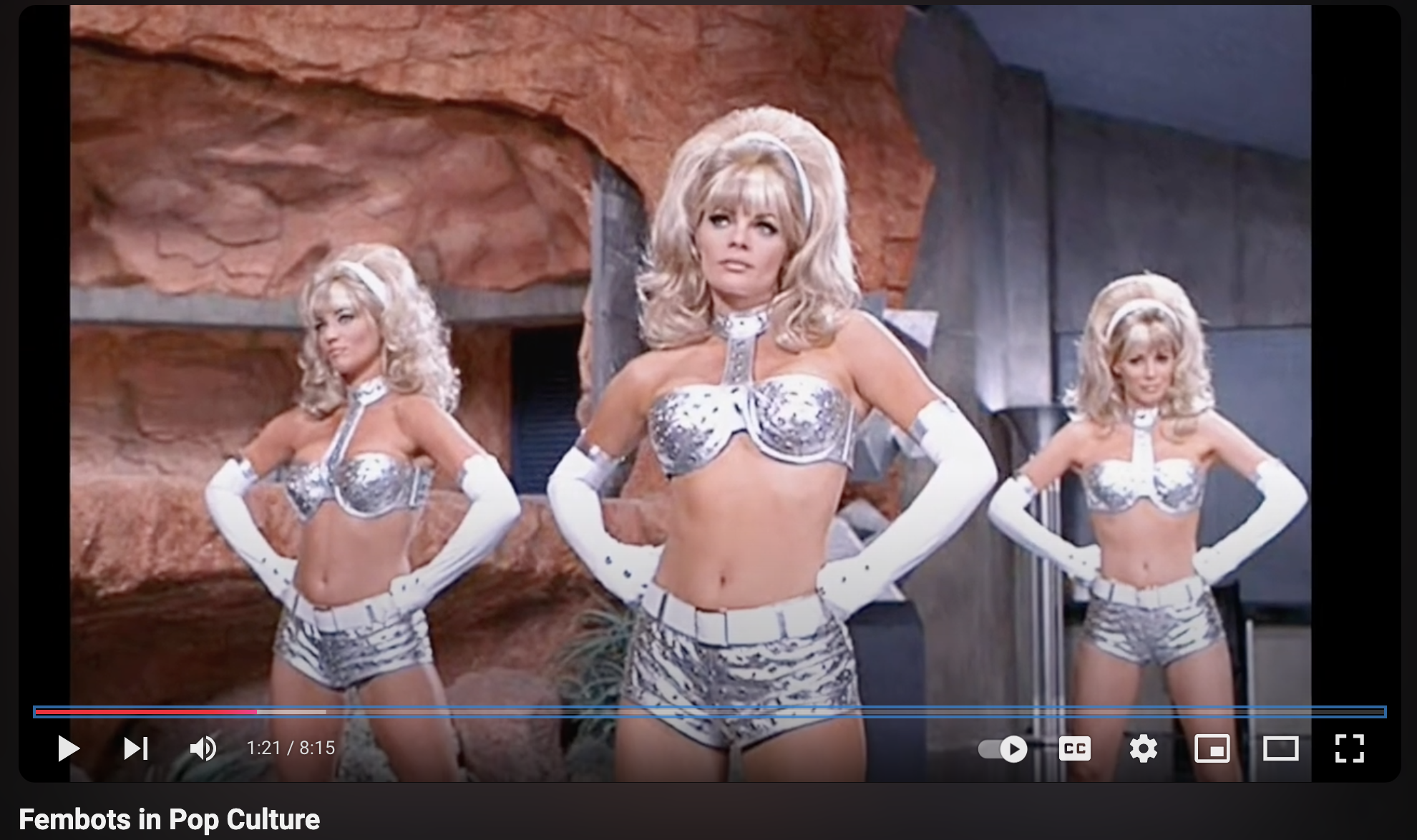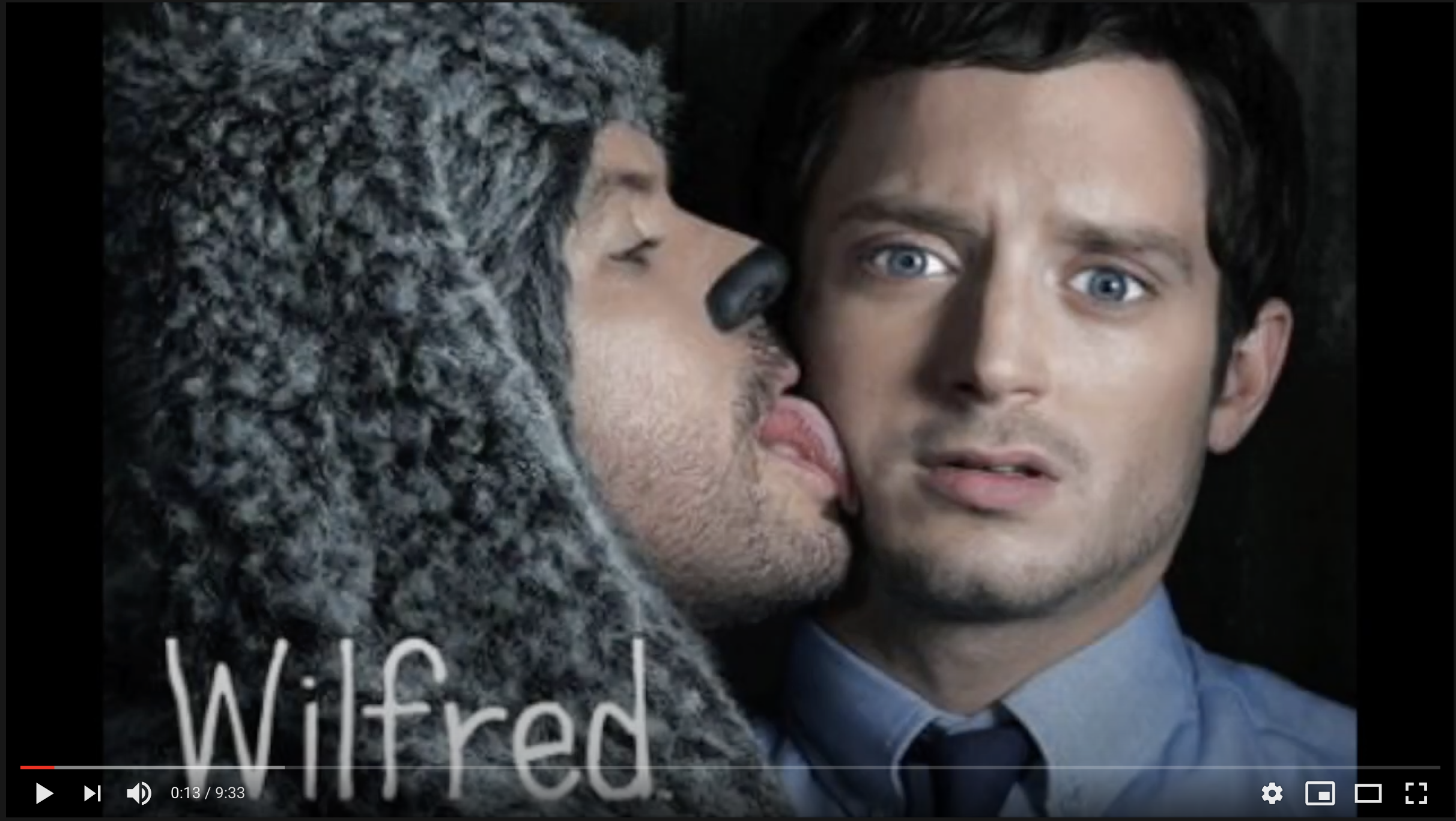This whirligig features gravediggers moving their pickaxes and a preacher waving his arms. LINK to my YouTube video of the 2022 Shelburne Whirligig Festival
My reproduction of Roy De Forest’s painting “Country Dog Gentlemen”
It may seem counterintuitive to copy other artists’ work to find yourself, but I have faith that this art teacher knows what he’s doing. He said he’s seen hundreds of students do this project and find more of their voices. Plus, the project just sounds like a fantastic challenge and I want to take it on.
Access the video HERE
A feminist analysis of the fembot (female robot) in pop culture with material from the films Her, Ex Machina, The Machine, and Stepford Wives (1972 & 2004) and the TV series The Twilight Zone (original series) and Battlestar Galactica (2004).
The author at her Tarot reading stand, Burning Man, 2012
In 2012, I went to Burning Man and gifted at least 60 Tarot readings in 8 days on the playa.
Watch the video HERE
A mythological look at the trickster character of Wilfred from the American TV series (2011-2014) starring Elijah Wood and Jason Gann. #youtubeessays
The Star card from the original Rider-Waite deck, published 1909.
Despite the inexhaustible manifold meanings of the archetype of transformation, I shall attempt to place the Star Woman image in a context and assign her a role, without limiting her manifold meanings. Stars are universally considered guides, and generally, the soul, or anima, is personified as female. The Star Woman represents a female soul guide or psychopomp. She is not, however, a guide for the dead to the Underworld, but rather a guide for the living, maturing soul, one who mediates between the conscious and unconscious realms and assists in the individuation process. She is a guide for the soul’s Celestial Ascent.
In the TV series Wilfred, Elijah Wood plays Ryan, a depressed man who is the only one who can see his neighbor’s dog Wilfred, played by Jason Gann, as a man dressed in a dog costume. Wilfred the dog talks with Ryan constantly, persuading and manipulating him to take certain courses of action.
Yet it's not surprising or new to find the tragic and comic masks right next to each other, embodied in one artist like a double-faced Janus character. The Sad Clown archetype is both/and, both funny and tragic. Bobcat Goldthwait satirized this archetype to the hilt in the film Shakes the Clown, and Billy Bob Thornton brought a similar dark humor to Bad Santa--both of these sad clowns were drunks. The exposure of weakness is somehow funny--vulnerability is relatable.







